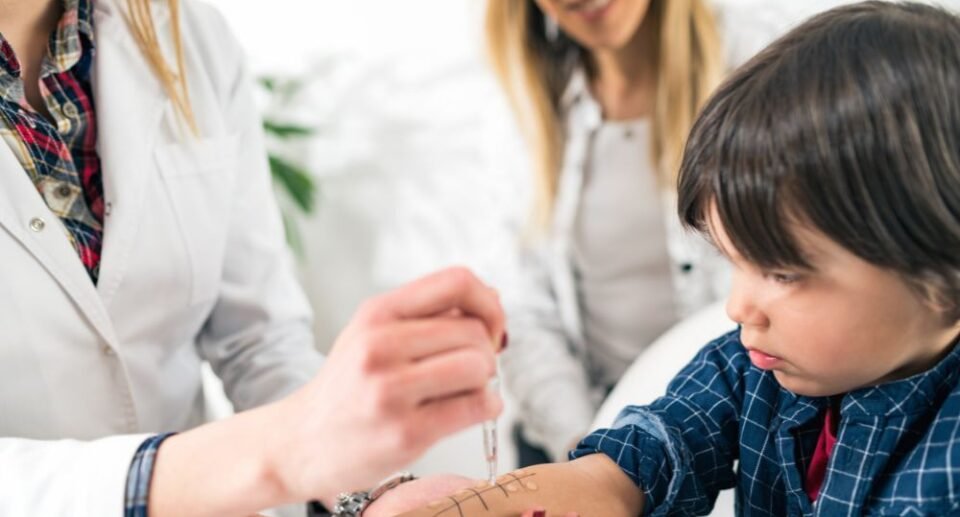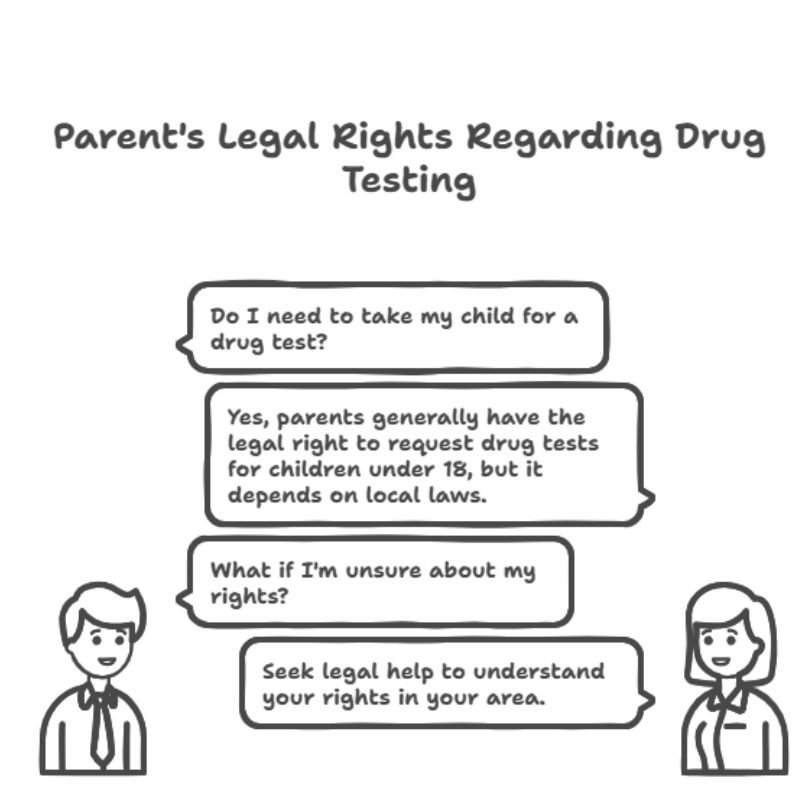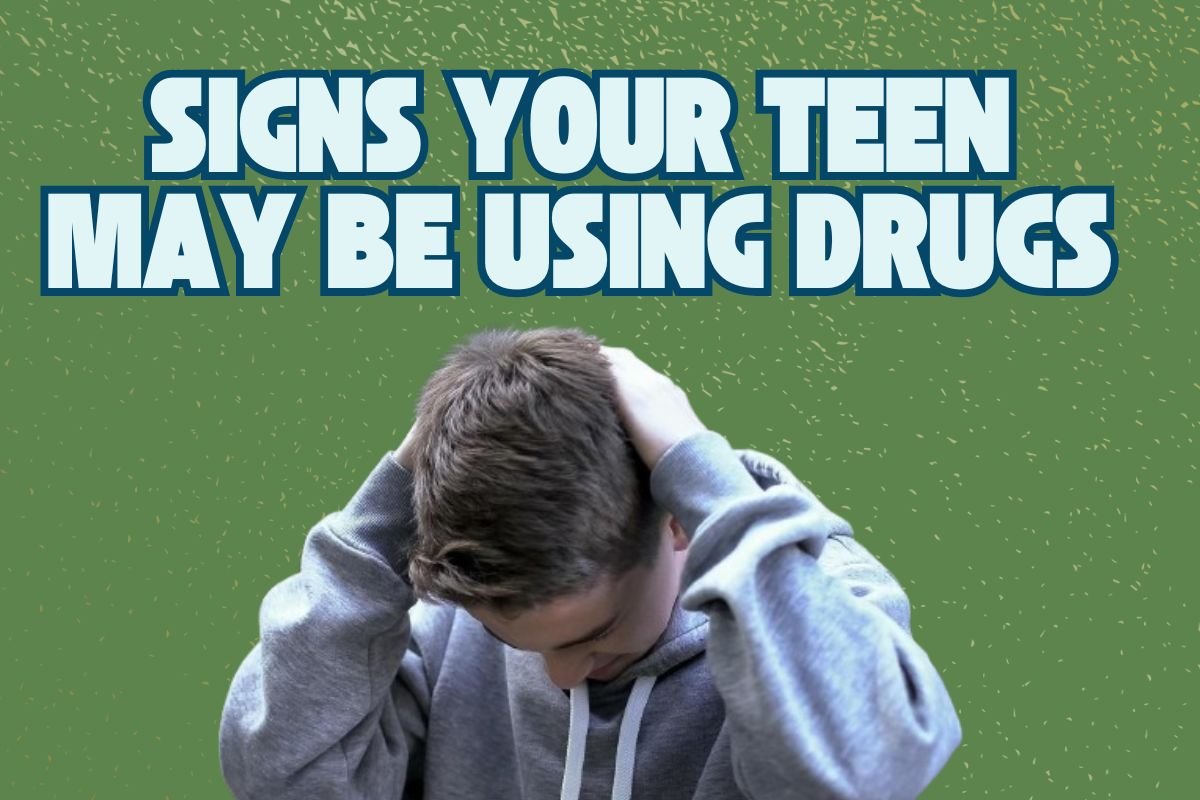Can a Parent Request a Drug Test for Their Child?

If your teenager is showing worrisome activity or you suspect drug use, it is essential to know your rights and options. We explain here how parents should navigate a tricky situation and we discuss what legal issues they need to consider. It can give you a sense of power to make your way through the problem and support in addressing any potential drug issues you may have. Let’s get started.
What Are a Parent’s Legal Rights Regarding Drug Testing?
Do I need to take my child for a drug test? Yes, parents do have the legal right to call for drug tests, especially when the child is younger than 18. But it can depend on where you live. For instance, some states or countries could have laws regarding when and how parents can request a drug test and if the child’s consent is required.
A parent who has custody of and responsibility for a child usually may request that drug testing performed on their child. Life is complicated and trust me, you shouldn’t making life decisions based on the opinion of some anonymous blogger on the internet. That said, if you’re not sure, seek legal help to learn what your rights are in your area.
What Types of Drug Tests Can Parents Use for Their Children?
There are several types of drug tests that parents can give to their child to monitor drug use. The following tests are the most popular and easiest to obtain:
• Urine tests: The most commonly used and the least expensive alternative. They can tell you whether you have taken drugs recently (over the past few days, or week, depending on the drug). Urine tests are relatively easy to perform and can be purchased over the counter for home use.
• Hair Tests: Hair tests are advantageous as they can determine the extent of prior drug use, sometimes for a period as long as three months. These are also more costly tests that require administration by a professional, but they have the largest detection window.
• Saliva Tests: Saliva tests are the least invasive but require a basic mouth swab. They’re fast and convenient but not as reliable as lab tests to look for drug use over time.
In addition to these standard tests, at-home drug tests are also available, although they are more invasive and less popular for home use.
Do Parents Need a Child’s Consent for Drug Testing?
Whether a parent needs a child’s consent will depend on local laws and the child’s age. As a rule, if a child is still a minor (under 18 years old), parents do not need to ask for consent for a drug test. Parents often have the legal right to make decisions concerning the health of their child, which includes ordering a drug test.
If the child is over 18, if the drug test is done in specific environments such as work or school, and if the test is done elsewhere than the home, consent might be necessary. Further, think about the emotional relationship pieces of demanding a drug test without your child’s permission.
Can a Minor Refuse a Drug Test?
A minor should have someone who represents their best interests. Can a minor say no to a drug test? Whether a minor can refuse a drug test depends on the laws in their area. Minors often are unable to say no when their parent wants them to take a drug test, whether it’s being conducted at home or under their parents’ watch, or whether the minor does not wish to take the test while the parent is present, the lawsuit alleges. Minors taking the test at a school, company or other institution may have more rights to refuse, depending on where they live and the laws governing those places in your state or country. Ensure you research the laws in your state to understand precisely what rights your child has. The impact of such action on the child and family functioning, while legally possible, is not an optimal solution.
What Should Parents Do if a Drug Test Is Positive?
Drug screening results can be one of the most troubling things a parent and child face. The first step is to remain calm and avoid jumping to conclusions. A positive result isn’t equivalent to addiction, but it can indicate that your child is already crossing lines of risky behavior. Depending on the drug and the context in which it was found, it is essential to have an open, honest conversation with your child.
Try to concentrate on why they’re doing all of this instead of who is to blame. If needed, get professional help like counselling, addiction treatment, or therapy to deal with the root causes and help your child overcome. However, timely care can minimize the likelihood of future issues.
What Are the Legal Implications of Conducting a Drug Test without a Child’s Knowledge?
Before you drug test a child, the legalities that surround it are of course of utmost importance. Parents typically have the right to impose drug testing, but there are factors to consider when administering the test secretly.
- Parental Rights vs. Privacy Laws: Parents usually have the right to request drug tests, but giving one on the down low could be breaking privacy laws.
- Potential Legal Violations: Some jurisdictions might charge with a law that the child’s rights have been violated if drug test to conducted without any notice or agreement from the parents.
- Impact on Parent-Child Relationship: Secret drug testing could lead to emotional consequences and strain the parent-child relationship.
- State Laws on Parental Notification: In some states, parents cannot drug test a minor without giving the child notice that a drug test is being administered and a test will given.
- Balancing Rights: It is essential to ensure that your legal rights do not supersede the child’s right to privacy and dignity.
Can Schools Drug Test Students Without Parental Consent?
The school policy and locally authorized government law define the rules in place for school drug testing. Non-authorized private schools can’t conduct drug tests on students unless the parents have given their consent. However, there are exceptions.
What Are the Consequences of Refusing a Drug Test in Family Court?
There are severe consequences when you deny a drug test in family court. In the context of custody or parenting time or even a simple visitation issue, the judge may hold it against you if you tell the court you won’t take a drug test.
It works both ways in the negative and positive. Refusal could interpreted as an admission of guilt, or simply as a barometer of how well or poorly the person is cooperating, and that could figure prominently in the court’s view of the case. The right answer is always to agree to the court-ordered drug tests and not create complications and unnecessary delays in the legal process.
Can a Parent Drug Test Their Child at Home?
Indeed, parents can test their child for drugs at home. Drug testing kits are pretty popular and you can purchase them over the counter at any local drug store. But it is also crucial that the test itself be fair and administered competently.
“At-home drug tests may be less reliable than those conducted in a professional testing facility”, says Jenny Martins, a treatment coordinator for the Indiana-based Options Treatment Program.
If the other test comes back positive, follow up with laboratory testing to confirm. Also, you should consider the psychological also effect on your child health with anxiety dieases, if you do a home drug test. My approach here is cautious and open, even if it ultimately leads to another difficult situation for trust levels.
What Are the Emotional Impacts of Drug Testing on Minors?
Drug testing could be emotional for minors. The possibility of a drug test can show a child the betrayal, anger and embarrassment that any invasion of privacy brings. Mismanaged, it can place an enormous strain on the parent-child relationship.
Moreover, if the tests are positive, it can add to the emotional turmoil of the child, particularly if he or she is having substance use issues as it is. It is a time for your parents to kind and emotionally supportive. An open conversation and a safe place to share will leave little emotional residue and people will still feel trust in the relationship.
How to Build Trust with Your Teen to Prevent Drugs?
Building trust with your teen is essential for fostering a strong relationship. Here are key steps to help establish that trust:
- Patience and Understanding: Trust-building takes time and requires patience and empathy.
- Clear Communication: Focus on having honest and open conversations, rather than just addressing negative behavior.
- Mutual Respect: Establish a foundation of mutual respect between you and your teen.
- Involve Your Teen in Discussions: Include your teen in family talks, giving them a voice in the conversation.
- Active Listening: Listen to your teen’s concerns without interrupting or judging.
- Avoid Lecturing: Focus on understanding rather than lecturing or criticizing.
FAQs
1. What types of drug tests can parents use for their children?
2. How should parents talk to their children about drugs?
3. Can you bring a child to a drug test?
4. When should a drug test be done?
5. Are drug tests always correct?
6. Can you buy drug testing kits?

Aashley Kai is the Editorial Director of Chelsea Famous Parenting and a licensed expert in early childhood education. She holds a Master’s in Child Psychology from the University of Texas Southwestern Medical Center and has worked as a preschool teacher and child therapist. Since joining in 2024, Aashley has been dedicated to creating well-researched, trustworthy parenting resources. Her work helps parents and caregivers foster nurturing, educational environments for children. Outside of work, she enjoys hiking and photography, capturing nature from a child’s perspective.






